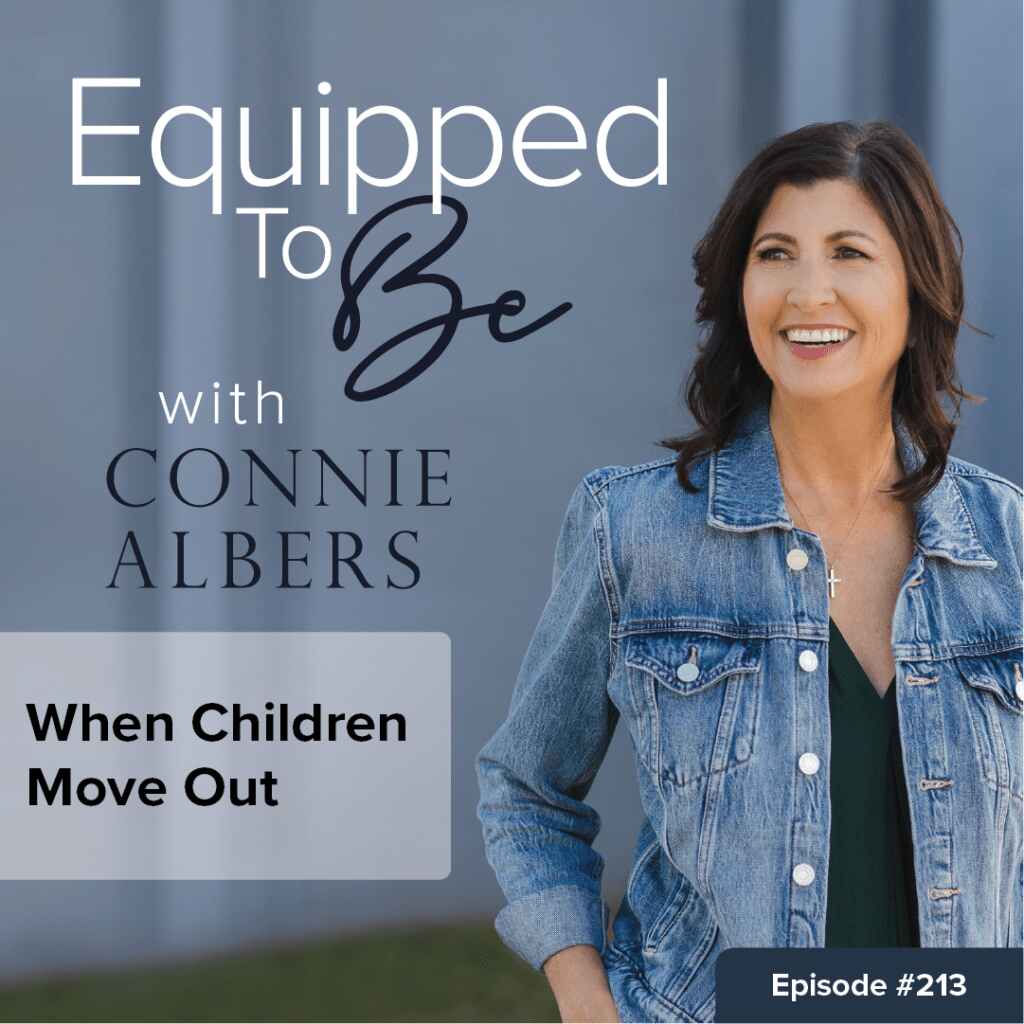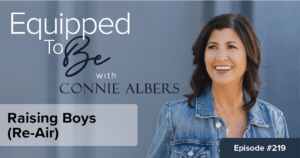Welcome to our heartfelt discussion, in which most of us are never really prepared to let go of our children. We can remember toddler days, middle school meltdowns, and high school proms. But what about when children move out? It’s a pivotal moment that every parent faces. I wasn’t prepared for the wave of emotions that would overwhelm me when our first child moved out.
Today, I’m focusing on the profound act of letting go and releasing our kids with grace into the world. As we navigate this transition, we’ll explore what it means to step back while lovingly holding a supportive space. This episode is filled with insights and stories to guide you through the emotional nuances of watching your children carve their own paths. I pray this episode will be of help to you as you learn how to embrace this bittersweet milestone with open hearts and a generous spirit.

Many experts believe there are signs parents should look for as the school year comes to a close. That’s why I’m excited to share this episode with you and your family. I want you to know how to help your kids manage stress so they can know what they can do in future situations.
Reshaping Our Connection
Letting go of our children as they venture into adulthood is a bittersweet journey that all parents must face. This essential transition involves understanding that our children naturally seek independence, a vital part of their development.
As parents, our role evolves from being hands-on guides to supportive advisors. It’s also a time to redefine our relationships with them, transitioning to an adult-to-adult dynamic. This process isn’t just about stepping back—it’s about reshaping our connections to respect their new-found autonomy while continuing to offer love and support from a new perspective.
Understanding the Transition
Navigating the journey from childhood to adulthood is a pivotal aspect of both parenting and a child’s development. Understanding the nuances of this transition is essential for maintaining a healthy and evolving relationship as children grow into independence.
The Natural Progression
The Natural Progression: Children’s pursuit of independence is a natural, healthy part of their growth. From the early days of asserting their preferences in clothes and food to making significant life decisions such as choosing a college or a career path, this drive for autonomy is crucial. It prepares them to face the world with confidence and resilience. As they grow, this need for self-sufficiency becomes more pronounced, manifesting in their desire to explore, make their own mistakes, and learn from them. Acknowledging this progression is essential for parents to understand that stepping back is not a sign of losing connection but rather a necessary phase of development that supports their child’s journey toward becoming a well-rounded adult.
The Parent’s Role
The Parent’s Role As children edge toward independence, the parental role must undergo a transformation. The transition from being the primary decision-maker to a guide on the sidelines can be challenging. Parents need to shift from hands-on management to offering advice and support when asked. This doesn’t mean parents become less important; instead, their involvement becomes more strategic. It’s about knowing when to step in and when to let children navigate their own paths. This advisory capacity helps build trust and respect in the relationship, showing children that while their parents are always there for support, they also believe in their ability to make decisions.
Redefining Relationships
Redefining Relationships As children mature, the dynamic between parent and child must also evolve to reflect an adult-to-adult relationship. This redefinition is crucial for maintaining a healthy, respectful bond. Parents and children need to learn to interact on more equal grounds, discussing life’s challenges and successes without the hierarchical implications that typically define a parent-child relationship. This might involve setting new boundaries and finding new ways to communicate that respect both the parent’s wisdom and the child’s autonomy. Successfully navigating this shift can lead to a richer, more fulfilling relationship that continues to thrive as both parties acknowledge and adjust to their evolving roles.
This evolving relationship paves the way for discussing specific examples that illustrate how you can effectively guide and support your children as they navigate the complexities of adulthood.
Strategies for Letting Go
As your child grows and steps into the world as an independent adult, you must adapt and embrace this new phase of life as a parent. Here are some heartfelt strategies for letting go that can help ease the transition and foster a positive transformation in both your life and your child’s.
Seek Community
You’re not alone in this journey. Many other parents are experiencing similar feelings as they adjust to their children growing up and moving out. Connecting with others who understand what you’re going through can be incredibly comforting and enlightening. Whether it’s joining a support group, participating in community activities, or simply sharing stories and tips with friends, building a network of support helps lighten the emotional load and provides a broader perspective on the transition.
Practice Self-Care
As you navigate this chapter of letting your child step into independence, it’s crucial to remember to take care of yourself, too. Prioritize your own well-being, both emotionally and physically. It’s not just about finding peace with the changes around you but also about replenishing your spirit and strength. Whether it’s through meditation, a new hobby, or regular exercise, nurturing yourself ensures you have the energy and positivity to support your child—and embrace your own journey of growth and rediscovery.
Keep Perspective
It’s vital to keep perspective on what letting go truly means. Remember, releasing your grip doesn’t signify an end—it’s an important part of fostering independence in your child. By letting go, you’re not losing a relationship but transforming it. This is a time to celebrate the role you’ve played in your child’s journey to becoming a confident, self-reliant adult. Embrace this as a natural, positive step in life’s cycle that opens up new possibilities for you and your child. Embracing these strategies not only helps you let go with grace but also enhances your ability to enjoy and appreciate this new stage in your relationship with your child. It’s a journey worth celebrating, filled with growth, love, and new beginnings.
Final Thougths
As you prepare for a new season of life, it’s important to hold close to the beautiful truth that letting go isn’t about losing a part of our journey with our children but rather an essential step in their growth and ours. Celebrate the amazing individuals your children are becoming—their resilience, successes, and the paths they are carving for themselves. Remember, while your role as a parent evolves, it remains profoundly significant. Your ongoing support continues to be a cornerstone in their lives, adapting to meet the needs of this new chapter. Embrace this change with a heart full of pride and a spirit ready to support them in new ways. Let’s look forward to the wonderful things ahead, cherishing every moment of this transition.
References and Links
The following may contain affiliate links.
- Learn more about Parenting Beyond the Rules
Related Episodes
How to Connect with Connie
- Follow Connie Albers on Instagram | Facebook | Pinterest
- Buy Connie’s book Parenting Beyond the Rules
- Learn more about the Equipped To Be podcast
Subscribe to Equipped To Be
If you enjoy this podcast, please subscribe and leave a review. It’s a great way to support the show and only takes a few seconds. It helps us reach more families when you do this. ~Thank you.
Have a Question or Want to Book Connie to Speak?
Want to contact Connie with a question? Want Connie to speak at your event? Contact Connie here.


